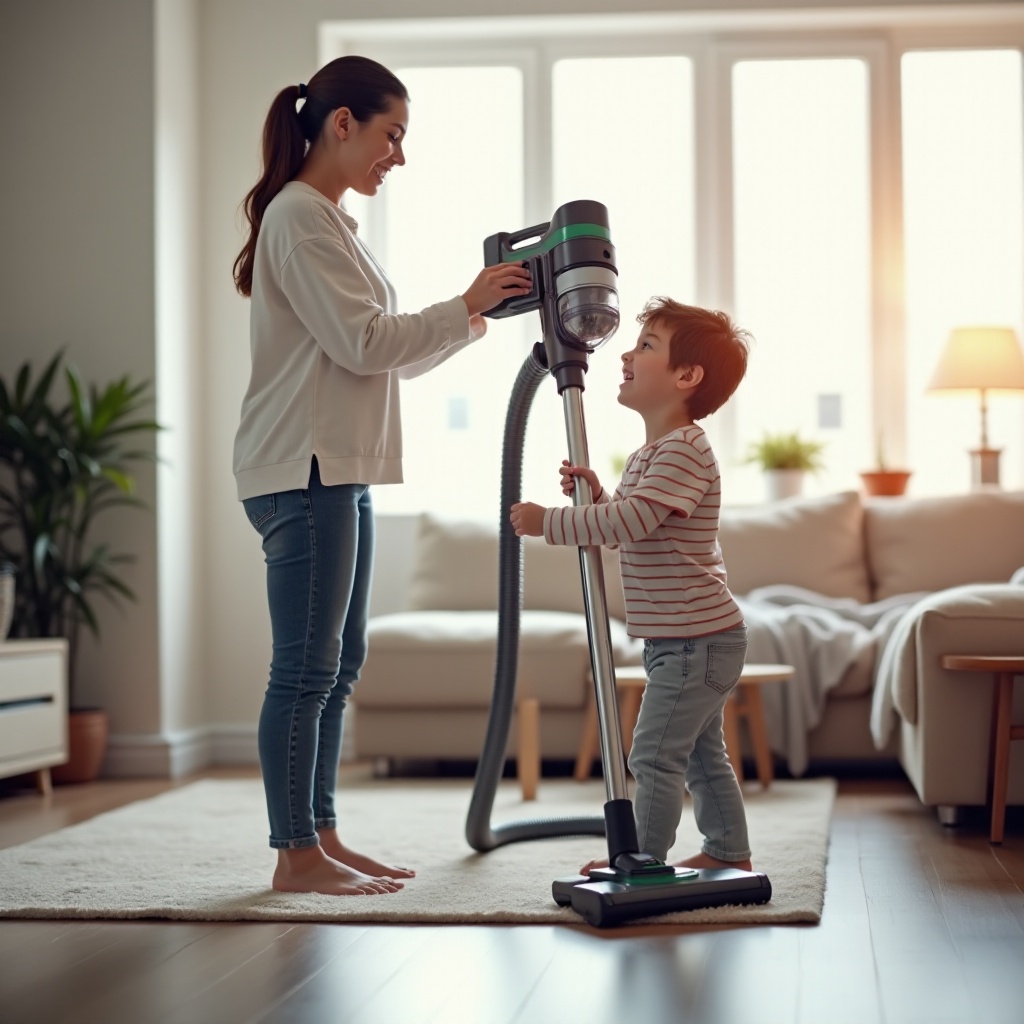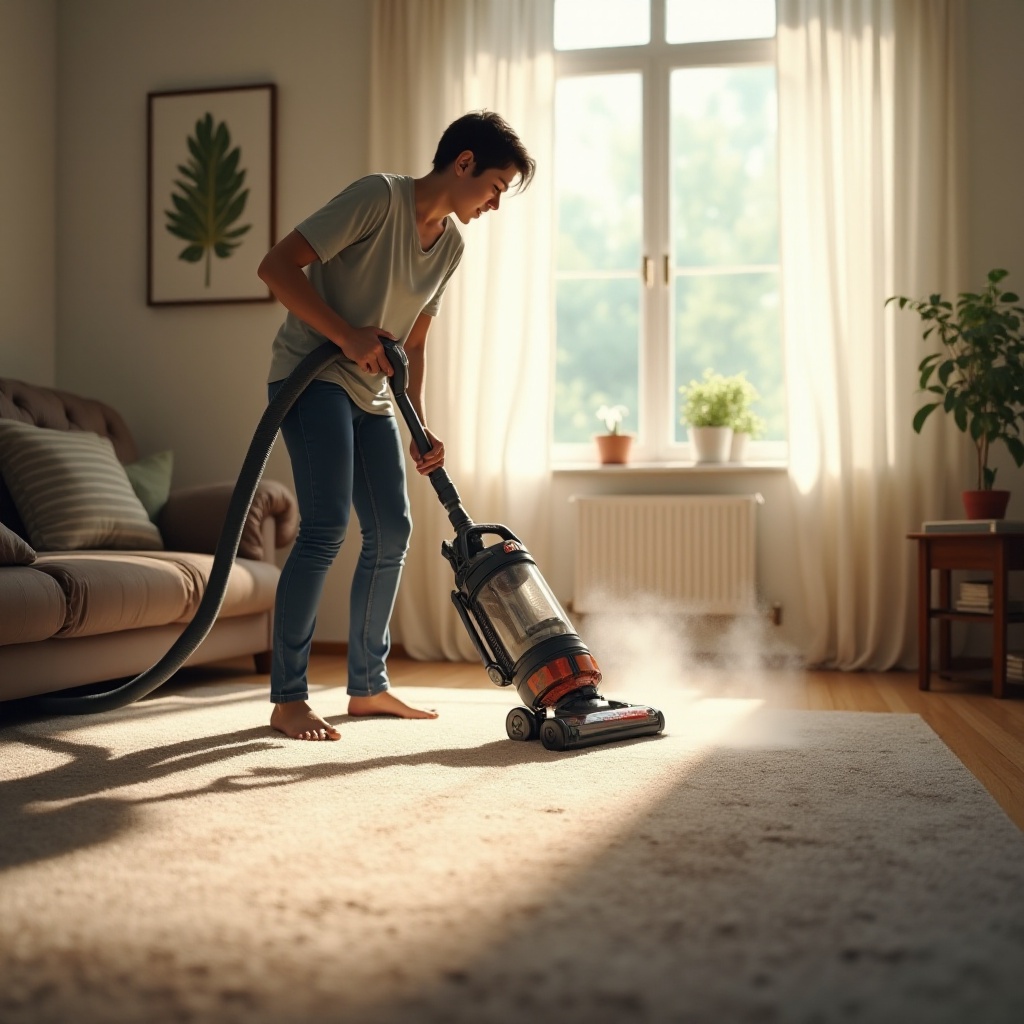Introduction
Identifying when it’s time to replace your vacuum cleaner can save you from frustration and help maintain a clean environment. Ignoring telltale signs of a vacuum on its last legs can lead to inefficient cleaning and potential hazards. This guide highlights the top signs indicating you need a new vacuum in 2024, ensuring an informed and timely upgrade.

Weak Suction Power
Weak suction power is a common sign that your vacuum may need replacing. If you notice that your vacuum isn’t picking up dirt and debris as effectively as it used to, despite cleaning the filters and ensuring the bag or dustbin isn’t full, this indicates a decreased performance.
Vacuum cleaners are designed to lose suction over time due to motor wear or clogs in the system. Persistent weak suction may suggest internal issues that repairs can’t adequately address. Investing in a new vacuum will improve cleaning efficiency and save time and energy.

Strange Noises and Sounds
Unusual noises from your vacuum, such as whining, grinding, or rattling, are strong indicators of mechanical problems. These sounds often stem from worn-out parts or objects lodged within the vacuum.
Persisting strange noises, despite troubleshooting and basic maintenance, suggest that your vacuum’s components are failing. Operating a vacuum in this condition can cause further damage, potentially putting your household at risk. Replacing your vacuum will restore peace of mind and ensure effective operation.
Burning Smells
If your vacuum emits a burning smell, it’s likely overheating or experiencing an electrical malfunction, which can be due to a jammed motor, overused belts, or electrical issues.
Burning smells indicate severe internal problems posing fire hazards if ignored. Even after cleaning blockages and checking belts, if the smell persists, consider replacing the vacuum. Prioritizing safety over cost can prevent hazardous situations and maintain home security.
Damaged Power Cord
A damaged power cord isn’t just an inconvenience; it’s a safety hazard. Frayed or exposed wires can lead to electrical shocks, short circuits, and even fires.
If you notice consistent issues with your power cord – such as it not staying plugged in or visible damage – your vacuum likely needs replacing. DIY repairs on electrical components can be risky and unreliable. Investing in a new vacuum ensures safety and eliminates frequent interruptions during cleaning.
Overheating Issues
Frequent overheating is another clear sign that your vacuum may need replacing. If your vacuum gets unusually hot quickly or shuts off to cool down, it may be struggling with internal issues.
Overheating can indicate blockages, faulty cooling fans, or old motors that can’t keep up with current demands. Frequent overheating reduces vacuum efficiency and can cause motor burnout. A new vacuum with updated cooling features will provide reliable performance and prevent overheat-induced damages.
Age and Technological Advancements
Vacuum cleaners don’t last forever. Most vacuums have a lifespan of around 8 years, though this can vary based on usage and maintenance. As vacuums age, they become less efficient, and outdated technology can’t match the performance of newer models.
Technological advancements in recent years have led to vacuums with improved suction, better filtration systems, and additional features like smart technology. If your vacuum is showing its age, now might be the perfect time for an upgrade to take advantage of these advancements.
High Repair Frequency
Frequent repairs are a sign that your vacuum is nearing the end of its useful life. Continually fixing the same or new issues can be costly and inconvenient.
If you find yourself spending more on repairs than the cost of a new vacuum, it’s time to consider an upgrade. A new vacuum will offer better reliability, fewer interruptions, and ultimately provide better value for your money.
Ineffective Filtration
Effective filtration is crucial for maintaining indoor air quality, particularly for allergy sufferers. If your vacuum isn’t trapping dust and allergens as efficiently as it once did, it may be due to worn-out filters or a degraded system.
Modern vacuums offer advanced filtration systems, such as HEPA filters, that significantly improve indoor air quality. If your current vacuum is falling short, upgrading to a new model can provide cleaner air and healthier living spaces.

Persistent Bad Odors
Persistent bad odors coming from your vacuum even after normal maintenance could indicate deeper issues. These odors are often due to mold, bacteria, and lingering debris trapped in parts that can’t be easily cleaned or replaced.
A vacuum that continuously emits bad smells can make cleaning an unpleasant task and potentially spread germs. Upgrading to a new vacuum ensures you benefit from hygienic features designed to prevent odor buildup.
Changed Cleaning Needs
Your cleaning needs might change over time due to factors like moving to a larger home, adopting pets, or changes in flooring types. If your current vacuum doesn’t meet your evolving needs, it may be time for an upgrade.
Vacuums now offer features catered to specific requirements, such as pet hair management, hardwood floor protection, or deep carpet cleaning. Getting a new vacuum suited to your lifestyle ensures optimal cleaning efficiency and satisfaction.
Conclusion
Recognizing the signs that you need a new vacuum in 2024 is crucial for maintaining a clean and safe home. Weak suction power, frequent overheating, damaged cords, and ineffective filtration are just a few indicators that it’s time for an upgrade.
Don’t let an outdated vacuum compromise your cleaning routine. Investing in a new, technologically advanced vacuum ensures efficient cleaning, better air quality, and a safer home environment. Keep an eye out for these signs, and you’ll know when it’s the right time to get a new vacuum.
Frequently Asked Questions
How long should a vacuum cleaner typically last?
A vacuum cleaner generally lasts around 8 years, although this can vary depending on the model, usage, and maintenance. Regular upkeep can extend its lifespan.
Can I fix the suction power of my vacuum myself?
Sometimes, weak suction can be fixed by cleaning filters, checking for obstructions, and ensuring the bag or dustbin isn’t full. Persistent issues may require professional repairs or replacing the vacuum.
Are there specific vacuum cleaners recommended for pet owners?
Yes, vacuums specifically designed for pet owners come with features like stronger suction, specialized pet hair attachments, and HEPA filters to handle the extra dirt and allergens.
